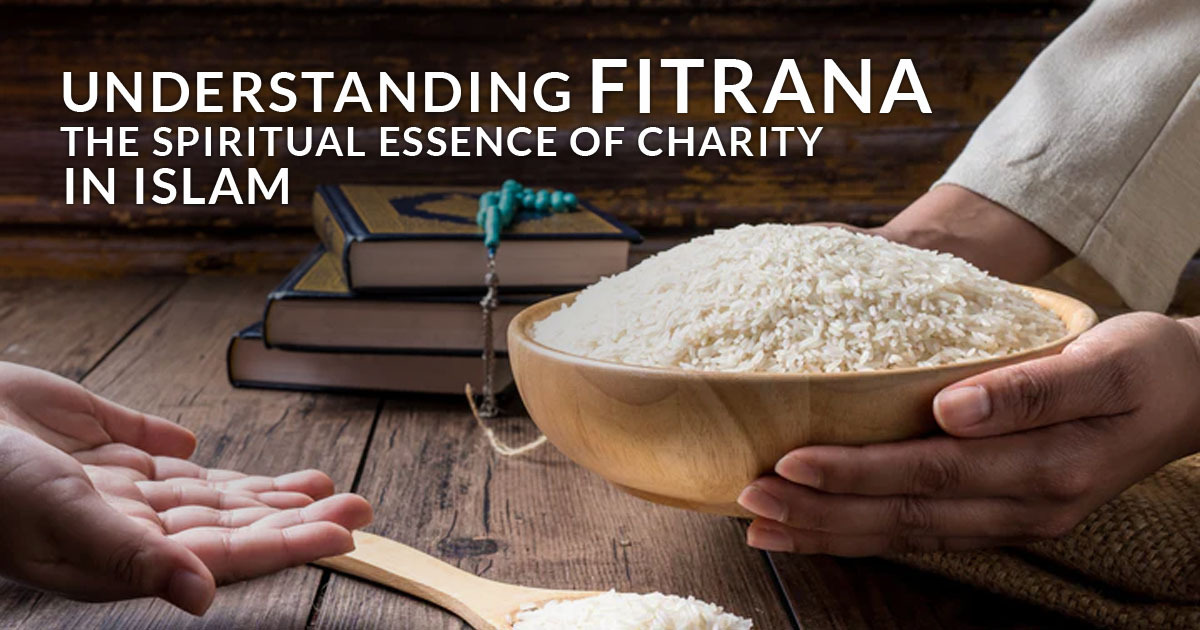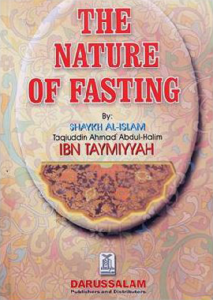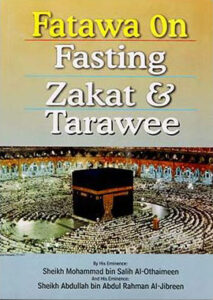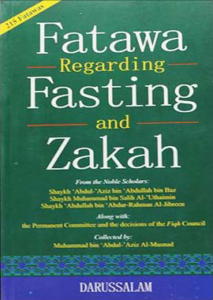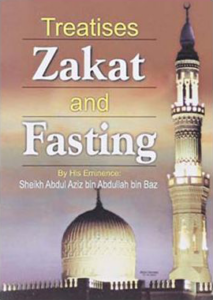In Islam, charity holds a significant place, not only as a means of helping those in need but also as a spiritual obligation. One of the essential forms of charity in Islam is Fitrana, often observed during the holy month of Ramadan. In this comprehensive guide, we will delve into the spiritual essence of Fitrana, its significance, and how it embodies the principles of compassion and generosity in Islam.
What is Fitrana?
Fitrana, also known as Zakat al-Fitr, is a mandatory form of charity in Islam. It is obligatory for every eligible Muslim who possesses the means to give before Eid al-Fitr, the festival marking the end of Ramadan. Fitrana serves as a purification for the fasting person and ensures that even the less fortunate can partake in the celebrations of Eid.
The Importance of Fitrana:
Fitrana carries profound significance in Islam, serving as more than just a charitable act.
Spiritual Purification: Fitrana purifies the fasting individual from any shortcomings or mistakes made during Ramadan. It symbolizes the completion of the fasting month with a pure heart and soul.
Solidarity and Compassion: By giving Fitrana, Muslims demonstrate solidarity with the less fortunate members of the community. It fosters empathy and compassion towards those in need, reflecting the teachings of Islam regarding social justice and equality.
Celebrating Eid: Fitrana enables everyone in the community, regardless of their financial situation, to partake in the joyous festivities of Eid al-Fitr. It ensures that no one is left behind and reinforces the sense of unity and happiness among Muslims worldwide.
Fitrana Calculation Process:
Calculating Fitrana involves a specific method based on prescribed guidelines within Islamic teachings. Understanding how Fitrana is calculated is crucial for every fasting Muslim who seeks to fulfill this obligation accurately. Typically, it involves assessing the value of essential food items and determining the appropriate amount to be given to oneself and dependents.
Learn More: Ramadan 2024 Zakat Fulfilling Your Pillar of Islam
Giving Fitrana: Step-by-Step Guide:
Giving Fitrana effectively requires adherence to certain steps to ensure its proper distribution and fulfillment of religious duties.
Calculate the Amount: Determine the value of Fitrana based on the current market prices of the specified food items or their monetary equivalent.
Identify Eligible Recipients: Fitrana should be given to those who are eligible to receive Zakat, such as the poor, needy, or those in debt. It is advisable to give locally to ensure direct assistance to those in the community who require support.
Distribution: Fitrana can be distributed directly to individuals in need or through reputable charitable organizations and mosques that facilitate the collection and distribution of Zakat and Fitrana funds.
Common Misconceptions about Fitrana:
Despite its importance, Fitrana is sometimes misunderstood, leading to misconceptions within the community.
Fitrana is Optional: Some Muslims mistakenly believe that Fitrana is optional. However, it is obligatory for every eligible fasting individual who possesses the means to give.
Fitrana can be Delayed: Unlike other forms of charity, Fitrana must be given before Eid al-Fitr prayers. Delaying Fitrana beyond this deadline is not permissible unless due to valid reasons, such as forgetfulness or unavoidable circumstances.
Fitrana is Only for Muslims: While Fitrana is primarily for Muslims, it can also be given on behalf of eligible non-Muslim dependents, such as domestic workers or employees, provided they are not responsible for paying their own Zakat.
Fitrana Amount is Fixed: The amount of Fitrana is not fixed and may vary depending on the region and prevailing economic conditions. It is calculated based on the specified quantity of food items or their equivalent monetary value.
Fitrana Substitutes for Zakat: Fitrana is distinct from Zakat, which is an annual obligation on wealth. While both serve as forms of charity, they have different purposes, recipients, and calculations.
Read More: What Are the 5 Pillars (Tenets) of Islam?
Conclusion:
Fitrana holds immense spiritual significance in Islam, serving as a means of purification, solidarity, and celebration. By fulfilling this obligation, Muslims reaffirm their commitment to compassion, generosity, and social justice, embodying the true essence of charity in Islam. Understanding the importance and principles of Fitrana enriches one’s spiritual journey and strengthens communal bonds within the Muslim ummah.
FAQs About Understanding Fitrana: The Spiritual Essence of Charity in Islam
Is Fitrana obligatory for every fasting individual?
Yes, Fitrana is obligatory for every eligible fasting individual who possesses the means to give before Eid al-Fitr prayers.
Can Fitrana be given in cash instead of food items?
Yes, Fitrana can be given in cash equivalent to the value of the specified food items, especially if it facilitates distribution to those in need more effectively.
Who is eligible to receive Fitrana?
Fitrana should be given to the poor, needy, or those in debt who are eligible to receive Zakat.
What if someone forgets to give Fitrana before Eid al-Fitr?
If someone forgets to give Fitrana before Eid al-Fitr prayers, they should give it as soon as possible afterwards, but it should not be delayed without valid reasons.
Can Fitrana be given to charitable organizations or mosques for distribution?
Yes, Fitrana can be given to reputable charitable organizations or mosques that facilitate the collection and distribution of Zakat and Fitrana funds, ensuring it reaches those in need.

